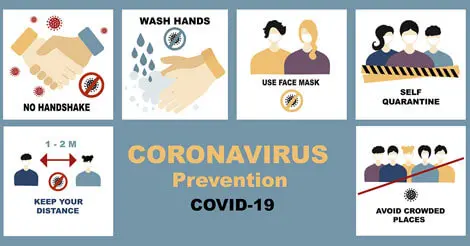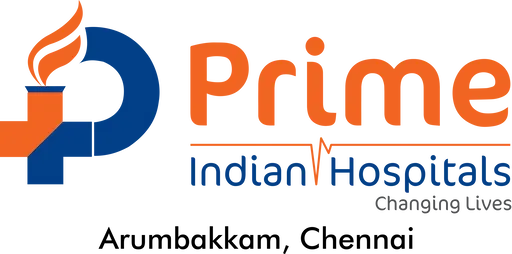COVID-19 (Coronavirus Disease 2019) is a contagious viral infection caused by the SARS-CoV-2 virus. First identified in Wuhan, China, in December 2019, it rapidly escalated into a global pandemic impacting millions worldwide. As one of the trusted Coronavirus Treatment Hospitals in Chennai, Prime Indian Hospital is dedicated to early detection, patient-centered care, and preventive health strategies to ensure the best outcomes for our community. While there is no definitive cure, timely medical care, antiviral medications, and strict preventive measures can effectively manage the illness and reduce complications.
What is the new COVID variant?
A new COVID-19 variant, NB.1.8.1, has emerged as a variant under monitoring by the World Health Organization (WHO). This strain was first detected in China in January 2025 and has since been identified in several countries, including the United States. In the U.S., cases have been reported in states such as California, New York, Virginia, and Washington, primarily among international travelers arriving at airports .
NB.1.8.1 is a subvariant of Omicron, specifically related to the JN.1 lineage. It has been associated with a rise in infections in regions like the eastern Mediterranean, Southeast Asia, and the western Pacific . Despite its spread, the WHO currently assesses the public health risk of NB.1.8.1 as low, noting that existing vaccines continue to offer protection against severe disease
Is COVID-19 Curable with Medicine?
COVID-19 is caused by a virus, and antibiotics (used for bacterial infections) are not effective. However, several treatments can help manage the disease:
- Antiviral Medications (e.g., Remdesivir, Paxlovid): Most effective when administered early in high-risk patients.
- Supportive Care: Includes adequate rest, hydration, and fever-reducing medications.
- Hospital Treatment: For severe cases, oxygen therapy, steroids, and intensive care may be necessary.
Vaccination remains the most powerful defense against serious illness and hospitalization.

COVID-19 Symptoms (May 2025)
- Current variants may cause the following symptoms:
- Fever or chills
- Cough (dry or with phlegm)
- Shortness of breath
- Sore throat
- Blocked or runny nose
- Fatigue
- Muscle or body aches
- Loss of taste or smell (less common now)
- Headache
- Nausea or vomiting
- Diarrhea
COVID-19 Testing at Prime Indian Hospital
We offer the following reliable diagnostic tests:
1. RT-PCR Test
- Highly accurate and widely recommended
- Nasal or throat swab; results in 6–24 hours
- Detects viral genetic material
2. Rapid Antigen Test
- Quick results within 15–30 minutes
- Suitable for preliminary screening
- Detects lung complications like pneumonia
- Used for moderate to severe cases
4. Antibody Test
- Identifies past infection or immune response post-vaccination
- Not used to diagnose current infection
When Should You Get Tested?
- If you experience COVID-19 symptoms
- After contact with a COVID-positive individual
- Before surgery, travel, or hospital admission (as per guidelines)
Note: Home test kits are available for convenience. Positive or uncertain results should be confirmed with an RT-PCR.
Treatment & Management at Prime Indian Hospital
- Antiviral Therapy
- Antiviral medications like Paxlovid are recommended for high-risk individuals and are most effective when taken early.
- Mild Case Management
- Home care includes rest, fluids, and over-the-counter medications for relief.
- Medical Attention
- Immediate care is advised for those with worsening symptoms or existing health conditions.
Causes of COVID-19 Spread and Severity (Original & New Variants)
- Airborne Viral Transmission: Microscopic viral particles expelled through coughing, sneezing, or speaking can linger in the air, especially in poorly ventilated areas, leading to high transmission rates.
- Delayed Detection in Asymptomatic Cases: Many infected individuals do not exhibit symptoms initially, unknowingly spreading the virus during their most contagious phase.
- Variant Adaptability: Mutations such as those found in subvariants like NB.1.8.1 increase viral survivability, allowing the virus to bypass partial immunity and spread more efficiently.
- Crowded Public Environments: High-density gatherings in closed or poorly ventilated spaces—such as public transport, markets, or events—create hotspots for rapid community transmission.
- Incomplete Vaccination Coverage: Uneven vaccination rates and missed booster doses leave populations vulnerable, particularly those with compromised immunity or pre-existing health conditions.
Preventive Measures to Follow
- Vaccination: Stay current with COVID-19 vaccines and boosters
- Masking: Wear a mask in crowded or enclosed areas
- Hand Hygiene: Wash hands frequently or use sanitizers
- Social Distancing:Especially important in high-risk zones
- Stay Informed: Follow the latest updates from health authorities
Symptoms: Then vs Now
Original Strain (2019–2020)
- High fever
- Dry cough
- Shortness of breath
- Loss of taste and smell (very common)
- Chest pain, fatigue
Newer Variants (2023–2024)
- Sore throat
- Mild fever
- Sneezing and runny nose
- Headache and fatigue
- Occasional gastrointestinal symptoms
- Loss of smell/taste is now less frequent
Conclusion
While COVID-19 is still evolving, our ability to manage it has improved significantly. Through early diagnosis, timely medical care, and public health awareness, we can control its impact. Vaccination, preventive practices, and community cooperation remain vital in the fight against COVID-19. Prime Indian Hospital stands committed to delivering trusted care — from testing and treatment to recovery and prevention.





